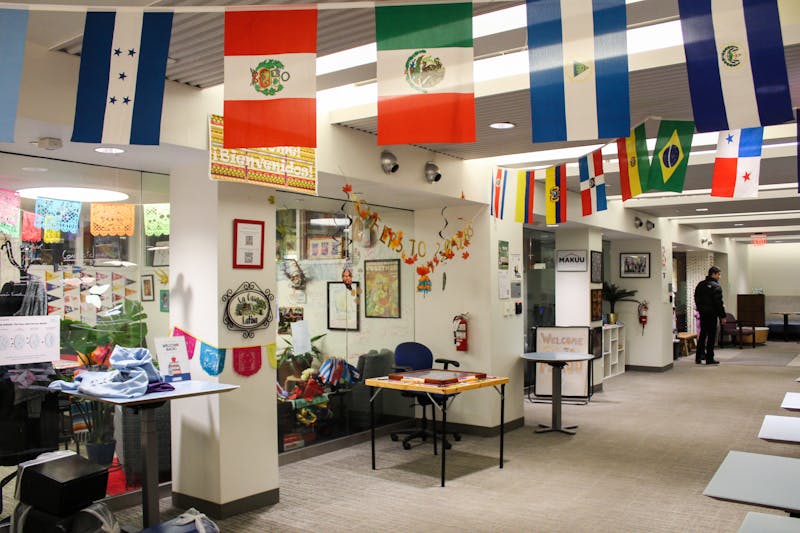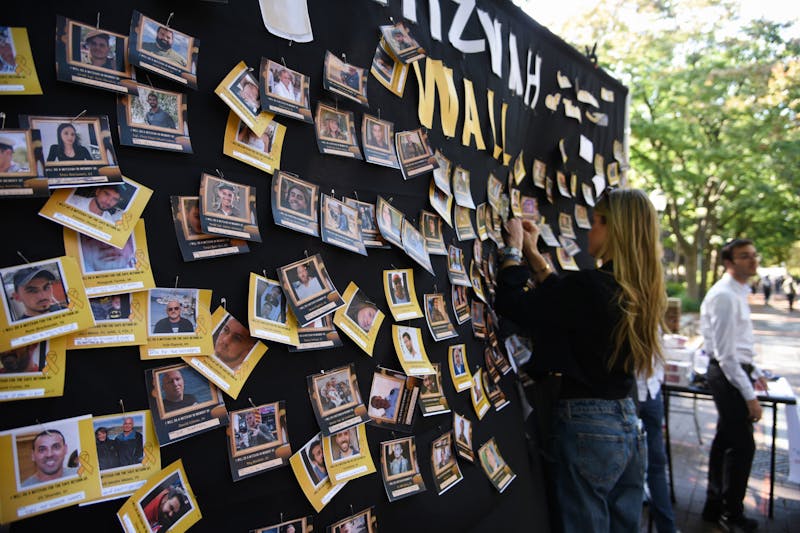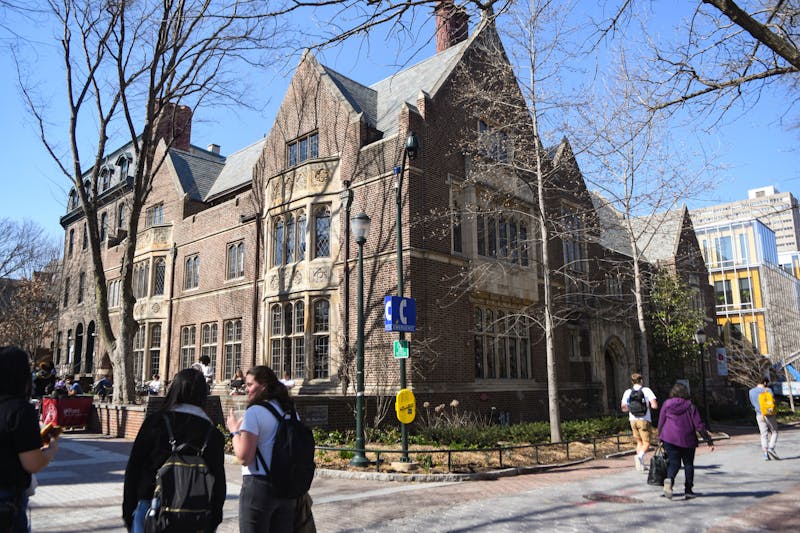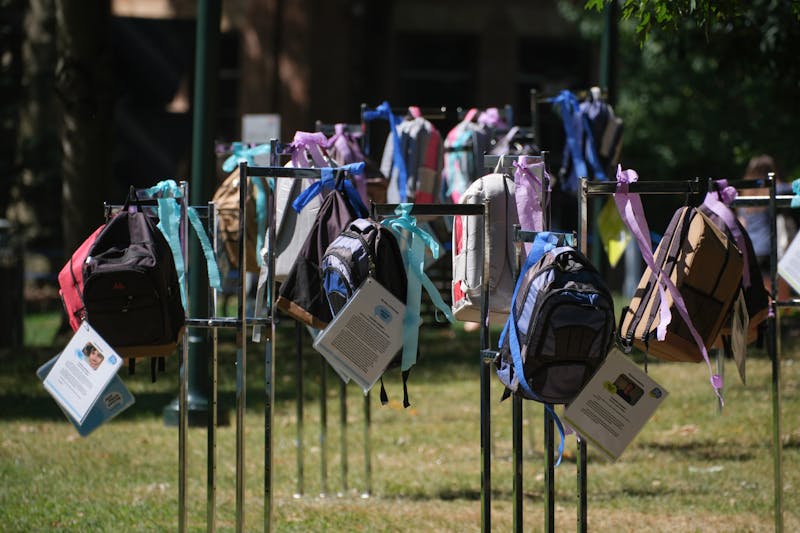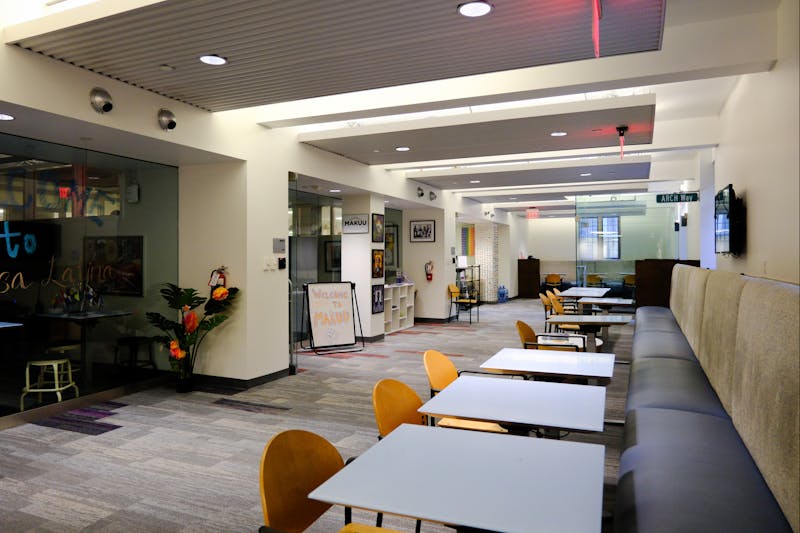
Indigenous student groups at Penn commemorated Indigenous Peoples’ Day on Monday with a picnic-style lunch at Greenfield Intercultural Center.
Members of Natives at Penn and Quechua at Penn gathered on Oct. 14 to celebrate Indigenous Peoples’ Day, which “recognize[s] and honor[s] Indigenous resilience and endurance through history,” according to NAP’s Instagram post. Students also later attended a celebration organized by Indigenous Peoples’ Day Philly celebrating communities in Philadelphia and beyond.
College senior and DP staffer Mollie Benn, a member of NAP and the Choctaw Nation of Oklahoma, said that Indigenous Peoples’ Day serves as a reminder that “Indigenous people are still here.”
“Some people consider [Oct. 14] to be Columbus Day, but that’s very forgetting of what happened in America. A whole population of people existed prior to the arrival of Europeans,” Benn said.
Philadelphia started recognizing Oct. 14 as Indigenous Peoples’ Day rather than Columbus Day in 2021. After issuing an executive order to officially change the designation of the day, former Philadelphia Mayor Jim Kenney wrote that the change was an “opportunity to recognize and teach about the atrocities that have occurred to Indigenous people through colonialism.”
College junior Nikolai Jawiyuga, a citizen of the Cherokee Nation of Oklahoma, said that this year, NAP emphasized community celebration as a way to take a break from their focus on educating the community through land acknowledgments and speaking engagements.
After the picnic, NAP members attended an Indigenous Peoples’ Day Philly event in Penn Treaty Park. The program featured speakers, singing and dancing performances, as well as workshop and storytelling activities that highlight both contemporary and traditional Indigenous art.
“[We are] working on finding a balance between external events that help the community and generally raise awareness, [and] events where we get to celebrate our sense of community and our sense of Indigeneity among ourselves,” Jawiyuga said.
Valeria Andrango, a College senior and president of Quechua at Penn, spoke about the importance of both learning about the histories of Indigenous peoples and understanding Indigeneity through an intersectional perspective.
“I think that’s really important when it comes to Indigeneity, understanding how intersectional it is and how there’s so much to learn from each other," Andrango said.
This year, the University did not send an email or issue a statement recognizing Indigenous Peoples’ Day. This is a departure from 2022, when Vice Provost for Education Karen Detlefsen and Interim Vice Provost for University Life Tamara Greenfield King sent an email calling on the Penn community to “reflect on the history of this day and how we can support our Native/Indigenous communities.”
NAP President and Wharton senior Ryly Ziese, a member of the Cherokee Nation, told The Daily Pennsylvanian that she waited for the email to be sent out all day, and described the lack of communication from the University as “interesting.” She added she hopes to discuss this decision with University administrators and learn more about how it was made.
“It felt like the University treated the day as invisible,” Ziese said.
However, both Ziese and Benn also commended Vice Provost for University Life Karu Kozuma and Associate Vice Provost for University Life Will Atkins for their involvement with and support of NAP. Ziese noted that after their appointments to their respective positions, they took initiative and extra steps to listen to NAP’s concerns.
“They took [our concerns] seriously, when they haven’t been taken seriously in the past,” Ziese added.
Both NAP and Quechua at Penn, a group that provides a community for students from South American Indigenous groups, operate under the Greenfield Intercultural Center.
“[The GIC is] a great home for us. We really enjoy getting together and talking about identity, and what it means to be indigenous, and building a community — no matter how big it is,” Benn said.
Going forward, Andrango said that she would like to see the more “holistic” inclusion of Indigenous members of the University community. She spoke about the lack of representation of Indigenous voices when considering events such as Hispanic Heritage Month or Climate Week.
“[I think something that would be appreciated would be] seeing Penn include Indigenous people in the conversation not solely at events hosted by the History Department, but in more contemporary spaces, as well,” she said.
The Daily Pennsylvanian is an independent, student-run newspaper. Please consider making a donation to support the coverage that shapes the University. Your generosity ensures a future of strong journalism at Penn.
Donate




